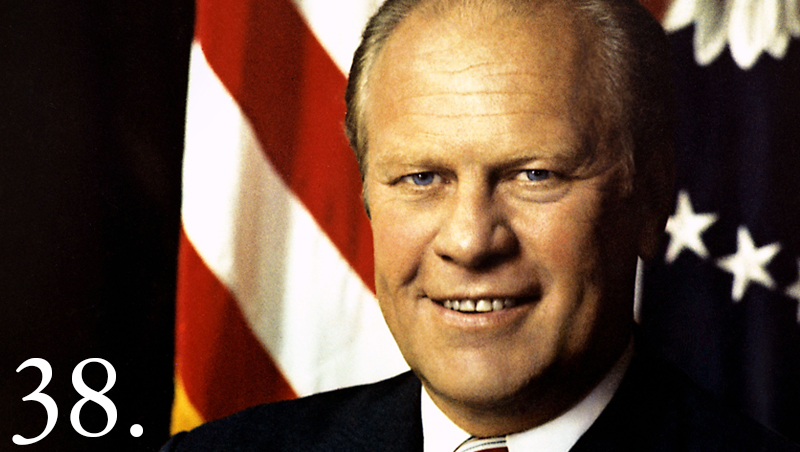Ford Motor Company’s stalling in its pursuit of profits stems from many reasons.
It’s suffered mega financial losses domestically and it’s reeling from red ink in every foreign market.
Published reports in March 2021 indicate Ford is turning its back on American workers. Instead of honoring a 2019 commitment to invest $900 million in a plant in Avon Lake, OH, the work is being moved to Mexico.
You might recall in 2018 after declining sales, Ford announced it will only focus on SUVs and trucks and only sell two cars in the United States.
But the truth is, Ford’s demise came to light in 2014. The company had been rocked by several quality issues from defective small-car transmissions to flawed infotainment systems.
Of course, Ford moved to correct its issues and has been making progress in manufacturing reliable vehicles.
“It’s one the biggest challenges in the industry,” Joe Hinrichs, now Ford Motor’s president of the Americas, was quoted about its new products. “It comes back to the processes, the discipline you have, whether you’ve done the work with your supply base. … We feel confident we’ve put the work in.”
If that’s true, Ford’s challenge is for sustained quality.
The company meets every Monday to discuss quality. The company’s leadership meets for ab annual half-day quality summit.
“It really comes down to leadership and commitment and process,” said Mr. Hinrichs. “We focused on all of those areas.”
But will his predecessor leaders be happy now?
Ford as a startup
Henry Ford (July 30, 1863 – April 7, 1947) as the founder of the Ford Motor Company was a disruptor. The industrialist and business mogul is legendary for positive and negatives in society.
On one hand, he innovated in developing the assembly line technique of mass production to make cars more affordable.
When he talked, Americans listened. In the 1920s, he was even thought to be a potential presidential candidate.
Conversely, he had a horrible legacy from being notorious for his anti-Semitic views. He had bought his hometown newspaper, The Dearborn Independent in 1918. He soon published dozens of articles as a dangerous demagogue. He claimed America was threatened by a so-called vast Jewish conspiracy.
Iacocca’s leadership
In the 1960s, the company enjoyed tremendous success on its development of the Mustang and Pinto cars. They were developed under the leadership of Lee Iaccoca, who passed away July 2, 2019.
Starting about 1968, the automaker marketed a timeless, memorable slogans: “Ford has a better idea!”
The five-decade old commercial prompts an important question: What is Ford’s marketing slogan now?
Do you know what it is? As a youth, I proudly learned to drive in a fast, sleek 1956 Ford but after all these years later, sadly, I don’t know what it is.
Mr. Iaccoca’s legacy as a leader was also inspirational as evidenced by these quotes:
—“Management is nothing more than motivating other people.”
— “You can have brilliant ideas, but if you can’t get them across, your ideas won’t get you anywhere.”
— “The only rock I know that stays steady, the only institution I know that works is the family.”
Change-management
Ford could now profit from Mr. Iaccoca’s philosophies and it’s been in dire need of a culture change.
Despite the challenges it faces, Ford Motor Co. “will figure it out,” said the automaker’s retired CEO, Alan Mulally, in Nov. 2018.
He speaks with authority. Mr. Mulally is famous for leading a change in culture at Ford.
So, for a positive case study in change-management, Ford qualifies.
Game-changing requires an assertive, strong administrator, especially because all such organizations go through humbling experiences. Strong visionaries know how to profit from ego-destroying events and plan for victory.
First, let’s consider one of the salient Ford headlines, such as: “Ford Makes Comeback From the Brink to Billion-Dollar Profit.” It had struggled in the late-2000’s recession.
Mulally legacy
Actually, Ford’s fortunes began to improve in 2006 when it looked outside the car-maker for solutions to its challenges. The automaker recruited Alan R. Mulally from Boeing.
The irony is that Mr. Mulally had his own ups and downs, of sorts. He had been bypassed twice by Boeing for the CEO’s job. But he was able to put his full talents to work at Ford.
Mr. Mulally had notably installed a competitive, sustainable business model. He simplified production processes. Managers, in effect, were told to change their perspective on change. He inspired a positive balance sheet by taking strategic steps on Ford’s cash flow.
Unlike Chrysler and General Motors, he didn’t seek a government bailout. This meant Ford was able to focus on being proactive, for example, the development of new vehicles – cars consumers would buy. Ford would not be hamstrung by bailout cash-flow constraints.
Chrysler and GM became beholden to the government – bureaucrats called the shots. Ford didn’t have to resort to discounting and incentives to attract car buyers.
“You can have brilliant ideas, but if you can’t get them across, your ideas won’t get you anywhere.”
Ford’s brand image skyrocketed as Chrysler and GM suffered from poor images – they were only able to survive with the help of bailouts and bankruptcies.
In other words, Ford’s success was summed up by this Boston Globe headline: “Ford Says Culture Change Has Led to Success.”
Culture change is not easy to achieve. Six steps are necessary to attain a cultural change for profits.
It’s not just a matter of knowing the automotive business.
Many businesspeople make a big mistake — they only consider hiring people from within their industries without regard for all the necessary skill sets. Mr. Mulally didn’t have automotive experience, but his management and manufacturing skills were transferable from the aircraft industry.
Simply put, solid business principles are applicable in all industries.
Lessons from Ford
Here are seven basic ingredients for a business game-changer:
1. Management
True leaders are strong, knowledgeable, and manage risks. They oversee all fundamentals but delegate – finance, marketing, operations, product management and customer service. Executives must also have a team spirit – an environment of collaboration.
For success, emotional intelligence is an important quality.
2. Vision
Top managers possess skills in analyzing their strengths, weaknesses, opportunities and threats in strategic planning. They avoid complacency and must continually fine-tune the company when appropriate.
How? They habitually practicing the Principle of Contrary Action, which is a process of learning how to keep an open mind. That stems from taking contrary action in all that you do and keeping a mental record of it. Then, taking a different approach every time you do it.
3. Focus
Managers must outline their master plan, stay focused and inspire the staff – the frontline responders to the marketplace – where the proverbial tire meets the road.
Nothing great has ever been accomplished without enthusiasm and passion.
4. Best Practices
Senior management must inspire best practices for quality in all areas. Creating value is job one.
5. Mobility and flexibility
The 21st century marketplace requires quickness and mobility. This also means empowering all workers in decision-making and in being proactive.
6. Listening skills
Effective managers are approachable. In a proverbial sense, they walk the floor twice a day to interface with their employees. They hire managers and staff members who, too, are effective in listening skills.
That’s the first step for a motivated staff and creating profits.
If need be, they get outside help. Without even looking at financials, an astute outside participant will always be able to ascertain the success potential of a company merely by listening and watching the interactions between management and staff.
7. Communication
Good, open communication is required internally with the team members and with the customers and marketplace. In this way, you’ll take great steps in inspiring loyalty from customers.
Let’s hope Mr. Hinrichs is right. And the company has learned from the successes of Messrs. Ford, Iacocca and Mulally.
From the Coach’s Corner, suggested related topics:
Profitability: 8 Ways to Create a Disruptive Business Model – Businesses seeking the spotlight and staying ahead of the competition should look for opportunities to embrace change and act quickly to be a first-mover in disruption. Here’s how.
Risk Management – Making Best Decisions, Using Right Tactics — To prevent a crisis from interfering with the continuity of your business, you must strategically plan to manage any potential risks. That means avoiding the classic mistakes routinely made by companies, and making the right decisions for proactive measures to minimize any dangers.
Management — 5 Frequent Causes of Cost Overruns and Failures — Extensive research shows how and why corporate projects result in cost overruns and failures. The academic study is entitled, ‘Yes Men’ Are Killing Corporate Projects. The research reported rampant misreporting of project statuses at all levels of the companies. The errant information is prompted from cultural predispositions to career aspirations.
18 Leadership Strategies to Earn Employee Respect — Here are 18 strategies to profit from good labor relations, and to leverage the perspective of employees – your company’s human capital.
20 Tell-Tale Signs You’re Underperforming as a Manager — Managers can often struggle whether they’re new or experienced. Poor management, of course, leads to poor performance. As red flags, underperforming managers share one of two common traits with ineffective employees. Such managers aren’t fully aware of their shortcomings. Even if they are aware of deficiencies, they’re afraid to admit it.
10 Steps to Manage Conflict for High Performance — For progress, a business needs human interaction for ideas and innovation. Sometimes, argument, debate and conflict prove to be productive catalysts for high performance. But such catalysts can be obstacles to success, too. Here are the simplest ways to manage conflict.
“In preparing for battle I have always found that plans are useless, but planning is indispensable.”
-Dwight D. Eisenhower
__________






